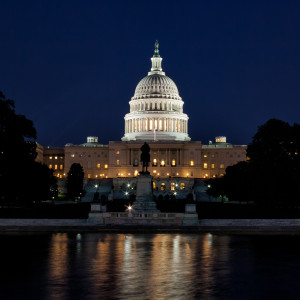Cry, the beloved building.
I have been lucky and have walked the halls of the Houses of Parliament in London, visited the Elysée Palace in Paris, the Bundestag in Berlin, and the Kremlin in Moscow.
But it is the Capitol, the building on a hill in Washington, that fills me with awe but it isn’t awesome or frightening, and doesn’t exalt in power.
The Capitol is at once romantic, imposing and egalitarian. Ever since I first set foot on Capitol Hill, the building has been for me, an immigrant, the elegant expression of everything that is best about America: open, accessible and shared.
Until terrorism changed things, anyone could walk into the Capitol without security checks. Taxis could draw up and let you out under the arches that designate the Senate or House entrances.
It hurt me in profound ways to see a mob, inspired by the rogue president and his lickspittle enablers, trash that hallowed place; try to lay waste to the temple of American tolerance, freedom, excellence and uniqueness; to treat it as an impediment to their coup, to their lies-fed catechism of overthrow.
To see any great building desecrated is painful, but to see it happen to the Capitol is to witness heresy against democracy, against Americanism, against our better angels and highest aspirations.
When Notre Dame Cathedral in Paris was engulfed in flames, I realized the building was a prayer: the elegant stone, wood and plaster embodiment of man’s search for God. By that measure, the Capitol is the embodiment of man’s search for fairer government.
As a reporter, the first thing you notice about the Capitol when you go there is how open it is once you have gotten through the metal detectors at the entrances. You walk the halls, ride the elevators and the little trains that run between the Capitol and the House and Senate office buildings, and eat in the cafeterias. The members have privileges, like their own entrances, reserved elevators and reserved train seats. But you can see legislators in the corridors and snack bars, conferring with aides, and often those who are there to get help or to lobby for a cause.
The work of government is at its most accessible to outsiders in the Capitol. Although there are tours, it is still best to roam the building alone, from the tunnels in the basement (where you end up when you take the elevator or stairs and go down too far) to the glory of the Rotunda. The tiled floors, paneling, frescoes, paintings and statuary are all art of the voice of the people, cobbled into a great building.
There are secret places in the Capitol, too. I once had lunch with Sen. Bennett Johnston (D-La.), chairman of the Senate Energy Committee, and The Wall Street Journal’s Paul Gigot in a dining room assigned just to the chairman of that committee — one that neither of us guests even suspected existed. The old Joint Committee on Atomic Energy had a near-secret set of offices accessible through a discreet elevator, unmarked and looking as though it might carry freight instead of nuclear secrets.
But mostly the work of the Congress, which is carried on in the Capitol and its adjacent office buildings, is surprisingly open, accessible and, in that, democratic.
My fervent hope is that freedom, which has been somewhat eroded over the years with new layers of security, isn’t further eroded after the Jan. 6 assault.
Looking forward, maybe the horror of government by the Great Lie will be held at bay. While we will never see an end to politicians’ fibs, we can hope that politicians will be called out for them, won’t have them respected as an alternative truth, which is the ignominious and extraordinary achievement of the Trump administration.
Trump laid the fire before the election, declaring there would be fraud, perhaps certain that he would lose. He lit it on Jan. 6.
The mob that stormed the Capitol isn’t to blame. The blame rests with those who have assaulted the truth over the past four years.
Blame Trump and castigate his enablers, from the talking heads of television to members of Congress like Republican senators Ted Cruz, Josh Hawley and Marco Rubio. They don’t deserve to sit under the Capitol dome. That is for those who care about America. It is a noble mantle.

